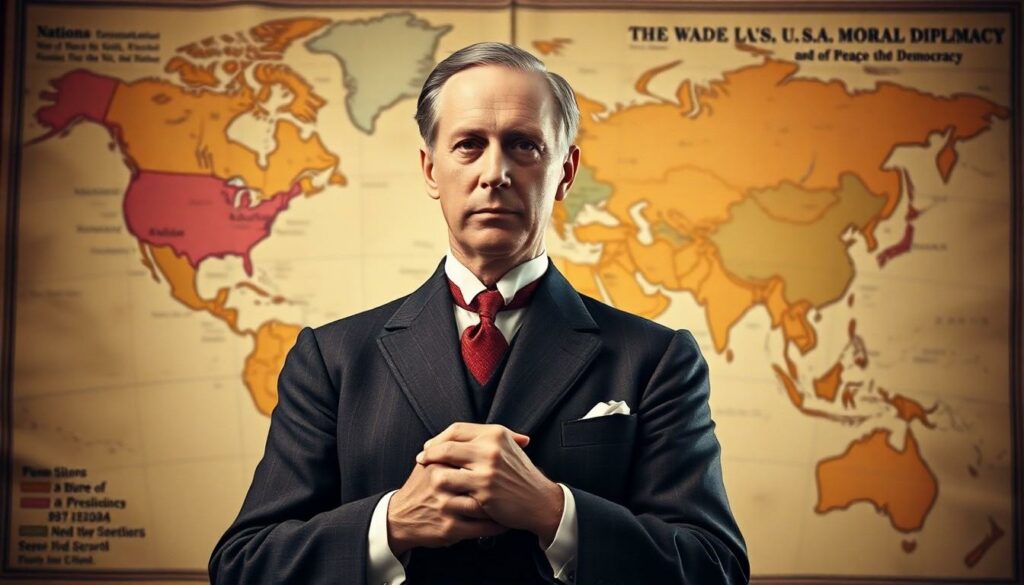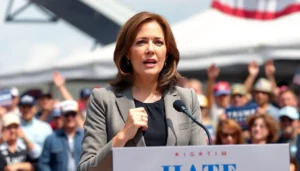Moral diplomacy might sound like the latest trend in yoga classes, but in the world of U.S. foreign policy, it’s a game-changer. Picture this: a diplomatic approach that champions ethics over mere power plays. Instead of flexing military muscles or throwing around cash, it focuses on promoting human rights and democracy. Who knew diplomacy could be so virtuous?
In the context of AP U.S. History, understanding moral diplomacy is crucial. It’s not just about memorizing dates and names; it’s about grasping how moral principles shaped America’s role on the global stage. This approach, championed by President Woodrow Wilson, aimed to align U.S. actions with its values. So, buckle up as we dive into this fascinating concept that blends morality with international relations—because who said history can’t be both enlightening and entertaining?
Table of Contents
ToggleUnderstanding Moral Diplomacy
Moral diplomacy emphasizes the ethical dimension of U.S. foreign policy, prioritizing human rights and democracy. This approach marked a significant shift from prior models that relied on military strength and financial clout.
Historical Context
Moral diplomacy emerged prominently during the early 20th century, primarily under President Woodrow Wilson’s leadership. Wilson was influenced by a desire to support democratic nations and promote peace globally. His ideas surfaced after experiencing the failures of imperialism and aggressive policies. Wilson’s approach sought to reshape international relations, focusing on aligning American ideals with foreign policies. Notable events include the U.S. involvement in Latin America and the Philippines, where he aimed to steer nations towards democratic governance.
Key Figures Involved
Woodrow Wilson stands out as the central figure in moral diplomacy. His vision for a world aligned with democratic principles drove significant changes in U.S. foreign policy. Other key figures include Secretary of State William Jennings Bryan, who advocated for negotiation and arbitration instead of conflict. Additionally, Theodore Roosevelt’s Big Stick diplomacy set the stage for moral diplomacy, as Wilson’s approach sought a more ethical alternative. Each of these individuals contributed to defining a new era in international relations, establishing moral considerations as significant factors in decision-making.
Principles of Moral Diplomacy

Moral diplomacy emphasizes ethical principles in foreign relations. It prioritizes human rights and democracy rather than military force or financial leverage.
Definition and Importance
Moral diplomacy refers to the strategy of promoting democratic ideals and ethical governance. Its foundation lies in the belief that U.S. foreign policies should reflect American values. This approach gained prominence during President Wilson’s administration, advocating for the support of democratic nations. Promoting human rights reshaped America’s global image, positioning the nation as a moral leader. Such an emphasis encourages countries to uphold virtuous principles, fostering a more humane international arena. Moral diplomacy remains essential in understanding U.S. history and its evolving role in global politics.
Comparison with Other Diplomacy Types
Moral diplomacy differs significantly from realism and imperialism. Realism often prioritizes national interest and power dynamics over ethical considerations. In contrast, imperialism seeks territorial expansion, often at the expense of indigenous populations. Another approach, known as dollar diplomacy, relies on economic power to secure influence. Each diplomacy type reflects unique priorities in international relations. In moral diplomacy, the focus lies on ethical governance, contrasting with the often harsh methods seen in alternative strategies. These distinctions illustrate the unique position of moral diplomacy within the broader context of U.S. foreign policy.
Impact of Moral Diplomacy
Moral diplomacy significantly shaped both domestic and foreign landscapes. It focused on promoting ethical governance, transforming America’s role in the world.
Domestic Effects
Moral diplomacy bolstered public support for government policies rooted in ethical considerations. During Wilson’s presidency, citizens became increasingly aware of global issues, prompting civic engagement. Advocacy groups arose, pushing for governmental actions aligned with U.S. values. Popularity for humanitarian efforts grew as people endorsed policies that mirrored their ideals. Education about international relations improved, fostering a generation of informed voters. Social movements, aimed at promoting democracy, gained momentum, resulting in a more politically active populace.
Foreign Relations
Foreign relations underwent substantial changes due to moral diplomacy. Support for democratic nations increased, particularly in Latin America and the Philippines. By emphasizing human rights and democracy, U.S. interactions shifted from military interventions towards negotiation and partnership. Other nations viewed the U.S. as a moral leader, inspiring similar movements worldwide. This approach facilitated peace treaties and reduced reliance on force. Effective diplomacy led to strengthened alliances based on shared values, enhancing America’s global standing and fostering a sense of international cooperation.
Case Studies of Moral Diplomacy
Moral diplomacy shaped U.S. foreign policy and led to significant developments under President Woodrow Wilson. This section explores key elements from Wilson’s administration and notable events that exemplify moral diplomacy.
Wilson’s Administration
Wilson’s presidency marked a pivotal shift in U.S. foreign policy. His commitment to promoting democracy influenced various international relationships. Under his leadership, the United States took a clear stance against imperialism, advocating for self-determination. Wilson believed that fostering democratic nations led to global stability. Consequently, he refrained from military intervention in Latin America unless absolutely necessary, prioritizing diplomatic efforts. His moral approach aimed to align the U.S. with countries that shared similar values.
Notable Events and Outcomes
Several events during Wilson’s administration highlighted the impact of moral diplomacy. The Mexican Revolution triggered diplomatic tensions. Instead of deploying military force, Wilson supported the establishment of a constitutional government in Mexico. Additionally, the moral diplomacy framework encouraged peace negotiations in Europe after World War I. His advocacy for the League of Nations aimed to promote international cooperation and prevent future conflicts. Overall, these events demonstrated how moral diplomacy prioritized ethical considerations while reshaping U.S. foreign relations.
Moral diplomacy represents a significant shift in U.S. foreign policy, emphasizing ethical governance and the promotion of democratic ideals. By prioritizing human rights and diplomatic engagement over military intervention, it redefined America’s role on the global stage.
This approach not only enhanced the U.S. image as a moral leader but also encouraged other nations to adopt similar values. Understanding moral diplomacy is crucial for grasping the complexities of U.S. interactions in the early 20th century and its lasting impact on international relations. The legacy of this diplomatic strategy continues to resonate in contemporary discussions about ethical foreign policy and America’s commitment to human rights worldwide.





